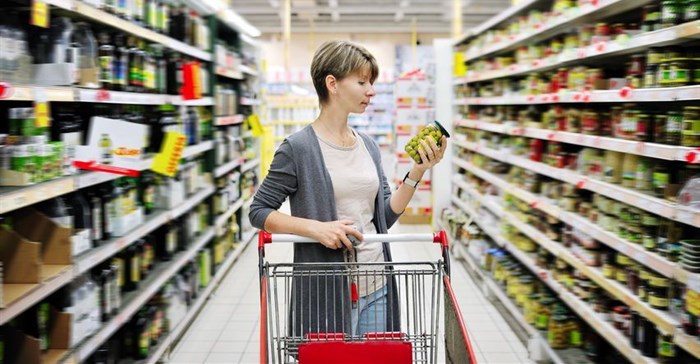
Top stories






More news

Marketing & Media
Ads are coming to AI. Does that really have to be such a bad thing?
















The draft regulations propose the mandatory use of bold warning labels on pre-packaged food that is high in salt, sugar, saturated fat and contains artificial sweeteners.
The draft regulations are in line with World Health Organization (WHO) recommendations for a healthy diet, which include limiting saturated fat consumption, limiting daily salt intake and limiting intake of free or added sugars. Overconsumption of saturated fats, salt and sugar can lead to people being overweight or obese, and can cause as a range of diet-related noncommunicable diseases such as heart disease, stroke, diabetes and some cancers.
Heala has welcomed the proposed changes to food labelling. Nzama Mbalati, programmes manager at Heala, says, "Heala is committed to mobilising communities to ensure policymakers take their concerns about unhealthy food consumption, and the need for warning labels to help them make more informed food decisions, seriously.
"We believe that food regulation is at the centre of encouraging and empowering consumers to make healthier food choices in line with the World Health Organisation’s recommendation for better regulation on the food environment. Front-of-package warning labels, in the shape of a black triangle, allow consumers to see the ingredients of a product at a glance, helping to increase their knowledge and change attitudes towards nutrition and health, and can help to reduce levels of diet-related disease.”

Current information on food packages can be misleading and challenging for consumers to read and understand. The regulations therefore aim to make far-reaching changes to the way food items are labelled on store shelves in South Africa.
This includes putting a stop to calling food products “smart” or “intelligent” on food labels and prohibiting the use of descriptors like “wholesome”, “nutritious”, “nutraceutical” or “super-food” on food labels. Words, labels and images that in any way suggest that the food is better, or superior are also prohibited under the new rules.
The DoH is also proposing that food items high in sugar and saturated fat content come with warning labels attached. It is demanding mandatory front-of-package food labelling (FoPL) to be present on all pre-packaged foodstuffs that contain added saturated fat, sugar and salt and which exceed the nutrient cut-off values for total sugar, total salt or total saturated fatty acids. Warning labels must also state the use of artificial sweeteners. Warning labels will have to cover 25% of the front of the package.
“Processed foods contain high amounts of added sugar, salt, unhealthy fats, and chemical additives, all of which can negatively affect children's health. These foods not only increase the risk of obesity and health problems, but also displace nutrient-dense whole foods in children's diets, leading to deficiencies in vital micronutrients.
“The regulations will help consumers to be better informed about what they are feeding their families and will help them to limit processed foods and prioritise whole, fresh foods for their children's health and well-being,” says Mbalati.
A 2018 study in the Western Cape found that 80% of foods in South African supermarkets were ultra-processed.
“More than 13% of South Africa children aged 6 to 14 years are overweight which is higher than the 10% prevalence in schoolchildren globally,” says Mbalati. “This is particularly troubling because extra kilos often start children on the path to health problems that were once considered adult problems, including diabetes, high blood pressure and high cholesterol. Childhood obesity can also lead to poor self-esteem and depression.”
“It’s encouraging that the DoH has heeded our call to introduce stronger FoPL on unhealthy food items and we commend its commitment to the safety of the South African public,” says Mbalati.
“We believe that food regulation is at the centre of encouraging and empowering consumers to make healthier food choices in line with the WHO’s recommendation for better regulation of the food environment. We hope that government will do the right thing and not capitulate to industry demands, as this will ensure that all people who live in South Africa are able to make informed choices. We urgently need to ensure nutritious food is accessible and available to all.”
Heala encourages consumers to submit comments on the proposed regulations by 21 July 2023 on this page.